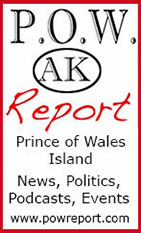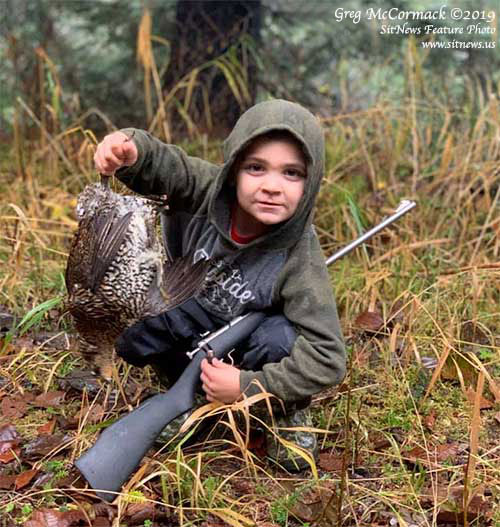
















Weekly Specials
Online Shopping; Pickup or Delivery |
|






 Contact Contact 
 Webmail
Letters Webmail
Letters
 News Tips News Tips
 Copyright Info Copyright Info
 Archives Archives
Quick News
Search
 Alaska Alaska
 Ketchikan Ketchikan
 SE Alaska SE Alaska
Columns
- Articles
 Dave Kiffer Dave Kiffer
 Money Matters Money Matters
Historical
Ketchikan
 June Allen June Allen
 Dave
Kiffer Dave
Kiffer
 Louise
B. Harrington Louise
B. Harrington
Sports
 Ketchikan Links Ketchikan Links
Public Records
 FAA Accident Reports FAA Accident Reports
 NTSB
Accident Reports NTSB
Accident Reports
 Court Calendar Court Calendar
 Recent Filings & Case Dispositions Recent Filings & Case Dispositions
 Court Records Search Court Records Search
 Sex Offender Reg. Sex Offender Reg.
 Public Notices Public Notices
 Alaska Recall Alerts Alaska Recall Alerts
 Recalls.gov Recalls.gov
 AST Daily Dispatch AST Daily Dispatch
 KTN
Police Reports KTN
Police Reports
 Juneau Police Reports Juneau Police Reports
Weather,
Webcams
 Today's
Forecast Today's
Forecast
 KTN
Weather Data KTN
Weather Data
 AK
Weather Map AK
Weather Map
 AK Weathercams AK Weathercams
 AK Earthquakes AK Earthquakes

|
|

Tuesday
November 19, 2019

|
First Hunt
Ryder Miller's mother Katie Ludwigsen (Wrangell) pointed out that Ryder was determined to shoot himself a grouse since he was given this gun a few weeks ago. And 50 or so shells layer, he got it! He and his brother ate the grouse and loved it! (Please note the little hunter was supervised.)
Front Page Feature Photo by
GREG McCORMACK ©2019
To have your photo featured on the front page, email your photo(s) to editor@sitnews.us
|
|
Southeast Alaska: M/V Tazlina to Service Parts of Northern Panhandle – Last week several lawmakers who represent coastal communities urged the Dunleavy Administration to fulfill the Alaska Department of Transportation’s mission statement to “Keep Alaska moving through service and infrastructure” by promptly getting two essential Alaska Marine Highway System vessels back into operation.
DOT recently made an announcement that M/V Leconte and Malaspina would be laid up, leaving the communities of Angoon, Gustavus, Pelican and Tenakee Springs completely without ferry service and leaving Hoonah and Kake with only limited runs. The decision leaves the communities in “existential crisis,” the lawmakers wrote.
“The ferry is the only economical means of transportation for many Southeast Alaskans,” the lawmakers wrote. “We know Railbelt residents would feel similar with a simultaneous closure of the Glenn, Parks, and Richardson Highways. With the multitude of recent, severe budget cuts to AMHS, and delayed maintenance to system vessels, this is leading to future economic and social disasters, if management action is not taken quickly.”
“This seems to be a funding priority crisis that can be solved. We understand that the department budgeted $1.2 million for repairs to the LeConte and the real cost of repair is closer to $4 million. This is not a valid reason to hamstring these communities and the administration has the tools to solve the problem. There is funding available — $20 million was set aside in an earlier budget for just this type of situation.
Reps. Jonathan Kreiss-Tomkins (D-Sitka), Dan Ortiz (I-Ketchikan), Sara Hannan (D-Juneau), Andi Story (D-Juneau), and Sen. Jesse Kiehl (D-Juneau) signed the November 12, 2019 letter to Gov. Mike Dunleavy and DOT Commissioner John MacKinnon.
M/V Tazlina to Service Parts of the Northern Panhandle
After weeks of effort, discussion, and negotiation, the Alaska Marine Highway System (AMHS) announced Friday, November 15th, that the M/V Tazlina is being brought out of layup status and will begin operating Nov. 21, 2019 to provide service to parts of the northern Panhandle through Jan. 5, 2020.
Crew for the ship are currently being called back to service, and will sail from Ketchikan to Juneau on Saturday. The ship will then dock in Juneau while preparing to return to revenue service. - More...
Tuesday PM - November 19, 2019
Fish Factor: Alaska's 2019 Salmon Season Worth $657.6 Million to Fishermen By LAINE WELCH - Alaska’s 2019 salmon season was worth $657.6 million to fishermen, a 10% increase from the 2018 fishery.
Sockeye salmon accounted for nearly 64% of the total value, topping $421 million, and 27% of the harvest at 55.2 million fish.
Those are the lead takeaways in a summary from the Alaska Department of Fish and Game that reveals preliminary estimates of salmon harvests and values by region. The final values will be determined in 2020 after processors, buyers, and direct marketers submit their totals paid to fishermen.
Pink salmon were the second most valuable species representing 20% of the total dockside value at $128.6 million, and 62% of the harvest at just over 129 million fish.
Chum salmon accounted for 10% of the value at $63.8 million and 9% of the harvest at 18.5 million. Coho salmon contributed about 5% of the fishery value at $29.6 million and 2% of the harvest at 3.8 million fish.
The Chinook salmon harvest of just over 272,000 was worth $14.4 million to fishermen, the third lowest value since limited entry began in 1975.
Salmon prices for 2019 took a dip for all but sockeyes which averaged $1.45 per pound, an increase from $1.33. The average price for Chinook was $4.48 per pound, down from $5.98 in 2018. Cohos at $1.15 dropped from $1.34; pink salmon at $.30 declined from $.45 and chums at $.49 took a big dip from the $.78 paid on average last year.
The price drops, especially for pinks and chums, likely stemmed from the huge Russian harvest that was expected to approach 1.8 billion pounds this year. That compares to a 2019 Alaska salmon catch of just over 872 million pounds.
Average salmon weights this year were 11.84 pounds for Chinook, up from 11.59 pounds in 2018. Sockeye weight of 5.24 pounds was down slightly from 5.26 pounds. Coho salmon averaged 6.77 pounds, down from 7.42; pinks averaged 3.27 pounds, down from 3.76 and chum weight at 7.07 pounds declined from 8 pounds on average.
At Southeast Alaska fishermen caught 32.2 million salmon valued at over $101.8 million. That compares to 21.2 million fish valued at $133.6 million in 2018.
Prince William Sound fishermen harvested 57.75 million salmon this valued at just under $115 million. Last year’s take was just over 29 million fish valued at nearly $95 million.
At Cook Inlet, fishermen caught more than 4.3 million salmon valued at nearly $23 million. That’s a slight improvement over the nearly 3.3 million fish valued at $18 million in 2018.
Bristol Bay fishermen had a total salmon catch of nearly 44.5 million salmon of which almost 43 million were sockeyes. The value of over $306.5 million was a record and compares to 43.5 million fish worth $281 at the docks in 2018.
Kodiak’s salmon fishery produced 35.7 million fish valued at $47 million. That compares to fewer than 9 million salmon worth $27.8 million last year.
At Chignik, fishermen fared far better with a catch of 3.5 million salmon valued at $8 million. Last year harvesters took just over 1,000 salmon (only 128 sockeyes!) worth less than $4,000.
At the Alaska Peninsula and Aleutian Islands region, a bumper catch of nearly 21 million pinks in the southern district pushed the total salmon catch to nearly 27 million salmon valued at over $49 million. Last year fishermen there took just over 6 million salmon worth more than $29 million.
On the Yukon, fishermen took 561,644 fish, mostly chums, for a total fishery value topping $2.5 million. That compares to over one million salmon valued at nearly $4.7 million in 2018.
Norton Sound harvesters landed 381,124 salmon worth just over $2 million at the docks. That compares to 540,796 salmon valued at $4 million last year.
At Kotzebue, fishermen caught 493,340 salmon, nearly all chums, valued at over $1.5 million.
That’s down from 695,000 fish last year, worth nearly $2.3 million at the docks.
Once again, there was no salmon fishing opportunity for fishermen at the Kuskokwim. The region’s CDQ groups abruptly closed its plant at Platinum a few years ago. No buyer means no commercial salmon fishing. - More...
Tuesday PM - November 19, 2019
|
|
National: DOJ OIG Releases Report on the FBI’s Management of its Confidential Human Source Validation Processes Posted/Edited by MARY KAUFFMAN – Department of Justice (DOJ) Inspector General Michael E. Horowitz announced today the release of a redacted report examining the Federal Bureau of Investigation’s (FBI) confidential human source (CHS) validation processes. The FBI’s CHS validation processes involve vetting the credibility of a CHS and assessing the veracity of the information the source provides. Validation is critical to the overall integrity and reliability of the FBI’s CHS program.
While Horowitz’s report examining the Federal Bureau of Investigation’s (FBI) confidential human source validation processe is released today, a broader investigation into the Russia probe, led by U.S. Attorney John Durham, remains ongoing. - More...
Tuesday PM - November 19, 2019
Alaska - National: House Prevents Loss of $7.6 Billion in Highway Funding – Today, the U.S. House of Representatives passed a Continuing Resolution that includes a repeal of the FAST Act rescission and protects states from a loss in highway funding totaling $7.6 billion.
Last week, Congressman Don Young (R-AK) and Congressman Chris Pappas (D-NH) led 107 of their colleagues on a bipartisan letter to Speaker Nancy Pelosi and Republican Leader Kevin McCarthy urging them to take immediate action to prevent the loss of unobligated funding for transportation and infrastructure projects.
“Today’s vote is a victory for infrastructure projects in Alaska and across the country, and I am pleased to see many colleagues on both sides of the aisle who joined me in taking action against this looming loss of funding,” said Congressman Don Young. - More...
Tuesday PM - November 19, 2019
Alaska: Superior court holds appropriations of future education revenue are constitutional By MARY KAUFFMAN – The Alaska Superior Court issued an order earlier this month upholding the prior appropriation of future revenues for fiscal year 2020 education funding. The superior court held that future revenues can be appropriated for future years, despite the annual budgeting framework set up by the Alaska Constitution.
"This decision upends the appropriations process as we know it and could lead to one legislature and governor setting the budget five, six or more years in advance,” said Attorney General Kevin G. Clarkson.
Clarkson said, “Although the education funding at issue here was only for one year in advance, following the superior court’s logic, there is really no time limit to speak of on the legislature’s decision to future appropriate, aside from political will. By the superior court’s decision, budgeting five years, six years, even 10 years out is fair game. We fundamentally do not believe that is what our constitutional framers envisioned when they discussed an annual budgeting process. This issue is too important not to appeal and get final guidance from the Alaska Supreme Court, so we all know going forward what the rules are." - More...
Tuesday PM - November 19, 2019
Alaska: Former Juvenile Justice Officer Sentenced to Fifty-Seven and a Half Years of Incarceration for Sexual Abuse of a Minor Conviction - On November 8, 2019, Superior Court Judge Jack Smith sentenced Phillip Bigham to serve 57.5 years on multiple counts of Sexual Abuse of a Minor.
Bigham was convicted by an Anchorage jury last year (November 15, 2018) of seven counts of Sexual Abuse of a Minor in the First Degree. The jury also convicted Bigham of attempting to aid the victim in escaping from McLaughlin Youth Center in Anchorage so that she could live in his garage.
Assistant District Attorney Betsy Bull, who handled the sentencing in the case, asked the court to impose a sentence of 57.5 years to serve in order to recognize that Bigham abused both the authority and trust placed in him as a juvenile justice officer when he engaged in a sexual relationship with a vulnerable inmate. - More...
Tuesday PM - November 19, 2019
Alaska: Former Foster Parent Convicted of Strangulation of 4 Year-Old Child – On November 13, 2019, a trial jury convicted Jason Madison of Assault in the First, Second, Third, and Fourth Degrees for strangling his then four-year old foster child with a belt. Madison was tried before the Honorable Andrew Peterson in the Anchorage Superior Court.
According to Assistant District Attorney Betsy Bull, who prosecuted the case, the evidence established at trial that Madison put a belt around his foster child’s neck and applied pressure, causing injuries. The child’s teacher alerted authorities when she observed abrasions on the child’s neck. The treating forensic nurse testified at trial that the child potentially faced a substantial risk of death. Detective Deven Cunningham with the Anchorage Police Department performed a thorough investigation resulting in the convictions in this case. - More...
Tuesday PM - November 19, 2019
Alaska: Man Pled Guilty to Preparing False Federal Income Tax Returns; Tax Loss to the U.S. Government is Approximately $443,465 – Jose Luis Arenas, 65, pled guilty recently to 5 counts of aiding and assisting in the preparation of false federal individual income tax returns with a clientele primarily of Spanish-speaking members of the Anchorage community, charging them $100 to $600 per return.
Arenas had tax preparation training through H&R Block, but since 2012 has never been a registered tax preparer in Anchorage, Alaska. According to the Plea Agreement, between tax years 2013 and 2016, Arenas consistently failed to indicate that he had filed them as a paid, professional preparer. Instead, the returns appeared to be filed individually by the taxpayers. Arenas would obtain undue tax refunds for his clients by inflating certain Schedule A deductions, particularly medical expenses and charitable giving. Oftentimes, Arenas would fabricate medical expenses, unbeknownst to his clients. - More...
Tuesday PM - November 19, 2019
|
|
PNW Fisheries: Bigger doesn't mean better for hatchery-released salmon; Over 65 years, Chinook salmon hatcheries in the PNW have skewed towards releasing larger fish that are more easily preyed upon - Fish permeate the culture of the Pacific Northwest (PNW). In particular, the iconic salmon has been an important part of the region for thousands of years, from ancient Native American trade routes and legends to modern fishing and sporting. In the area of the Salish Sea - inland waterways including Puget Sound, the Strait of Georgia, and the Strait of Juan de Fuca - the cultures, economies, and technologies there are all impacted and influenced by salmon. It is no wonder, then, that salmon are of high conservation interest and constitute a large proportion of hatchery-raised fish in the region.
A recent study in the Ecological Society of America's journal Ecosphere examines hatchery practices in regard to how the Chinook salmon that are released back into the natural waterways in the PNW are affecting wild populations.
In the face of changing climate, ocean conditions, freshwater habitat loss, and increased human consumption, many salmon populations in the PNW are depleted relative to historical abundance. A large salmon, for instance, is a prized and sought-after catch for a sport fisher. There is a growing demand for salmon hatcheries to provide food security and to bolster fish populations; many hatcheries release fish after they reach a certain age or size, with a goal of increasing opportunities for commercial, recreational, and indigenous fishers.
Salmon hatcheries in the PNW, however, seem to be releasing young fish when they are the desired size for predators to prey upon. In this case, bigger does not equal better for the salmon population's survival.
Chinook salmon - named for the native Chinookan peoples, also known as King salmon - is the largest Pacific salmon species. As juveniles, they migrate to the ocean in their first or second year of life and return to freshwater to spawn as adults 1-6 years later. It is as juveniles that populations are most vulnerable to predators. "Survival during the first year at sea has a large impact on the total lifetime survival and adult abundance of Chinook salmon in the Pacific Northwest," says lead author Benjamin Nelson. "This is a problem for other species that depend on them, like endangered killer whales, and for people who depend on them, such as Native American communities and commercial fishers."
Researchers analyzed more than 65 years of records and data on hatchery-origin Chinook salmon in the Salish Sea to examine long-term changes in hatchery release practices. It appears that hatcheries have progressively released juvenile fish at bigger sizes and they are currently releasing them in a larger size range preferred by fish, bird, and marine mammal predators. A 2017 study using GPS tags found that harbor seal feeding increased shortly after hatchery releases of large coho salmon, but interestingly, the seals did not respond to far more abundant but smaller-sized Chinook releases a few weeks later. Many predators show similar large-size (over 10cm) preference in studies over the years showing that smaller juvenile salmon encounter fewer predators. Thus, hatchery-origin chinook are more likely to be eaten before they have a chance to spawn. - More...
Tuesday PM - November 19, 2019
|
RICH MANIERI: Impeachment Hearings are a Lose-Lose Proposition - I’m not sure who to believe anymore.
House Intelligence Committee Chairman, and impeachment hearing ringmaster, Adam Schiff (D-Cal.) says he doesn’t know the identity of the whistleblower.
President Trump says he’s “too busy” to watch the hearings on television.
Each claim seems a bit far-fetched.
There are multiple reports that members of Schiff’s staff had secret meetings with the whistleblower. And we all know it’s unlike the president to miss, much less ignore, anything said about him by the media or his political opponents.
So, we hunker down with a bag of chips to watch the hearings to see if our side is winning. Meanwhile, America loses.
This process, such as it is, is so polluted by partisanship that I have very little confidence we are ever going to get to the truth which, after all, is what this is supposed to be about.
Instead, these hearings are an exercise in groupthink. Either the president is being railroaded or he’s already guilty and all that’s left is to fill in a few blanks.
Impeaching a president is a big deal. It doesn’t happen very often – four times in the history of the republic, though Richard Nixon resigned before the vote. It would be nice if we could trust our elected representatives as responsible stewards of such a gravely serious procedure.
But we can’t, and it’s their fault.
Our political discourse has plunged to such depths as to make it nearly impossible to accept anything we see or hear at face value. Many, if not most Democrats blame the president for this. Fine. To be clear, Trump doesn’t help himself by his bombast and name-calling. He has several nicknames for Schiff including “little pencil-neck.”
On the other hand, Schiff’s motives seem less than pure when he holds a series of secret hearings and declares, before any official impeachment inquiry, that the president is guilty. - More...
Tuesday PM - November 19, 2019
|

Political Cartoon: Moderate Democrats Take Center Stage at Debate
By R.J. Matson ©2019, CQ Roll Call
Distributed to paid subscribers for publication by Cagle Cartoons, Inc.
The fifth Democratic presidential debate, which will again feature 10 candidates, will be on Wednesday, November 20, from 9 to 11 ET at Tyler Perry Studios in Atlanta, Georgia, and will be broadcast by MSNBC. |
Open Letter To DEC Commissioner Jason Brune By Terri Robbins - I was appalled to learn of your recent statement at the AFN conference. To say that climate change is not an emergency in Alaska is incorrect, at best, and malfeasance of the most egregious kind, at worst.
We just experienced the hottest summer on record. Sea levels have risen, forcing coastal villages to relocate. Habitat for polar bears and other arctic mammals is disappearing at an alarming rate. The interior experienced devastating wildfires, as did south central and the Kenai Peninsula. The water levels in key salmon streams was dangerously low. Southern southeast communities were forced to rely on diesel power to supply electricity due to low levels of water in lakes supplying hydropower. An extreme drought was declared. In our oceans, whales were dying in large numbers due to starvation, arguably caused by warmer ocean temperatures which killed off plankton and krill. - More...
Wednesday PM - November 20, 2019
 |
State Legislature Year in Review By Rep. Dan Ortiz - As the House Representative for District 36, I’m writing to update you on some of the issues currently before the Alaska State Legislature. The 2019 legislative sessions were challenging – we continued to grapple with creating the budget, implementing a long term sustainable fiscal plan, and address declining revenue.
While we were able to hold fast on funding for departments like Fish & Game and Education, the Marine Highway System faced unprecedented cuts. During the interim, I have been focused on re-establishing the AMHS link to Prince Rupert. I will continue to push this issue until we see a long-term commitment by the Alaska Department of Transportation to keep Southeast connected.
New sources of revenue were not addressed, and funding for the budget continues to come predominately from our oil resources and a portion of the Permanent Fund Earnings. I am an advocate for policies that will promote as large of a dividend as possible while maintaining funding for essential government services and allowing for growth in the overall value of the Permanent Fund itself. - More...
Tuesday PM - November 19, 2019
 |
Save Our Seas 2.0 tackles global marine debris crisis By Sen. Dan Sullivan, Sen. Sheldon Whitehouse, Sen. Bob Menendez - We may have plenty of political differences, but we come from coastal states. That means we have a front-row seat to the peril of plastic waste and marine debris flowing into our oceans at the rate of around 8 million metric tons per year. We understand what it will mean for our fishing and tourism industries when the weight of plastic in our oceans equals the weight of fish in the sea — something projected to happen by mid-century. We don’t have a moment to lose in confronting this problem.
That’s why we built a coalition in Congress and gathered input from environmental and industry stakeholders alike. Despite a divided Washington, that work resulted in a bill that won broad, bipartisan support. When the Save Our Seas Act became law last October, it was a moment of bipartisan progress on a vital issue — one to be celebrated.
Before the president’s ink on Save Our Seas was dry, our bipartisan trio of senators began developing the Save Our Seas 2.0 Act. We sought to harness the momentum behind the first bill to up the ante on combatting the global marine debris crisis. Marine debris requires multifaceted, multisector solutions with a global reach, and the United States ought to be driving these solutions.
In developing the Save Our Seas 2.0 Act, we collected hundreds of comments and ideas from researchers, federal agencies, nongovernmental organizations and industry. We reviewed the latest science on marine debris and plastics pollution. We identified areas ripe for legislative action and others where investments in research are needed. We looked inward at the United States’ own waste management systems and how we could better position the country as an international leader — not hindrance. - More...
Tuesday PM - November 19, 2019
 |
Impeachable Offenses By Donald Moskowitz - Article Two of the U.S. Constitution states "The President, Vice President, and all civil officers of the United States, shall be removed from Office on Impeachment for, and Conviction of, Treason, Bribery, or other high Crimes and Misdemeanors."
The current impeachment inquiry by the U.S. House of Representatives against President Trump is focusing on the allegation he tried to bribe and/or extort President Zelensky of Ukraine to investigate the Bidens in the runup to the 2020 election in exchange for $400 million in foreign aid to Ukraine. The investigation of the Bidens did not occur and the $400 million in aid was subsequently given to Ukraine.Therefore no bribery or extortion occurred.
But did President Trump's actions meet the test of "high Crimes and Misdemeanors"?
A recent president to be impeached was Bill Clinton.. He was impeached for perjury and obstruction of justice relative to the Monice Lewinsky affair. Richard Nixon was charged, but not impeached as an outgrowth of the Watergate coverup. He was charged with obstruction of justice, abuse of power and defying subpoenas during the impeachment investigation. The House Judiciary Committee stated that "high Crimes and Misdemeanors" goes beyond crimes to include "behaving in a manner grossly incompatible with the proper function of the office and employing the power of the office for an improper purpose or personal gain."
Going back to the Constitutional Convention of 1787 the founding fathers decided the phrase "high Crimes and Misdemeanors" provided "flexibility and guidance" in deciding on impeachable offenses, which references 400 years of practice in Great Britain. - More...
Tuesday PM - November 19, 2019
Email letters, opinions, OPEDs to editor@sitnews.us
|
Articles &
photographs that appear in SitNews may be protected by copyright
and may not be reprinted or redistributed without written permission
from and payment of required fees to the proper sources.
E-mail your news &
photos to editor@sitnews.us
Photographers choosing to submit photographs for publication to SitNews are in doing so, granting their permission for publication and for archiving. SitNews does not sell photographs. All requests for purchasing a photograph will be emailed to the photographer.
|
|
















The Local Paper is
available online.
Click here for this week's printed edition (PDF)


|
|


![]() Contact
Contact ![]()
![]() Webmail
Letters
Webmail
Letters![]()
![]() News Tips
News Tips![]()
![]() Copyright Info
Copyright Info![]() Archives
Archives![]() Alaska
Alaska![]() Ketchikan
Ketchikan![]() SE Alaska
SE Alaska![]() Dave Kiffer
Dave Kiffer![]() Money Matters
Money Matters ![]() June Allen
June Allen![]() Dave
Kiffer
Dave
Kiffer![]() Louise
B. Harrington
Louise
B. Harrington ![]() Ketchikan Links
Ketchikan Links![]() FAA Accident Reports
FAA Accident Reports ![]() NTSB
Accident Reports
NTSB
Accident Reports![]() Court Calendar
Court Calendar![]() Recent Filings & Case Dispositions
Recent Filings & Case Dispositions ![]() Court Records Search
Court Records Search![]() Sex Offender Reg.
Sex Offender Reg.![]() Public Notices
Public Notices![]() Alaska Recall Alerts
Alaska Recall Alerts![]() Recalls.gov
Recalls.gov![]() AST Daily Dispatch
AST Daily Dispatch![]() KTN
Police Reports
KTN
Police Reports![]() Juneau Police Reports
Juneau Police Reports ![]() Today's
Forecast
Today's
Forecast![]() KTN
Weather Data
KTN
Weather Data![]() AK
Weather Map
AK
Weather Map![]() AK Weathercams
AK Weathercams![]() AK Earthquakes
AK Earthquakes










































